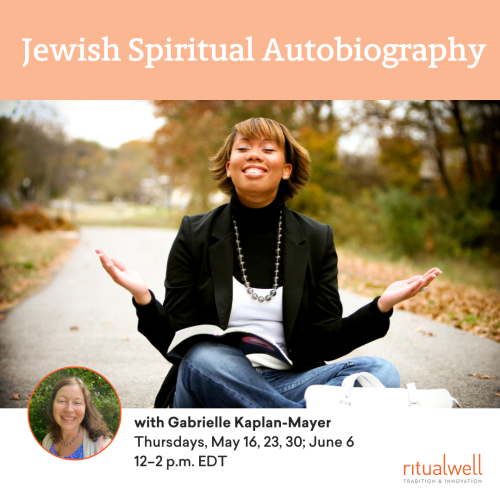Food rituals reflect different facets of Judaism – some tie me closer to God, some to TorahThe Five Books of Moses, and the foundation of all of Jewish life and lore. The Torah is considered the heart and soul of the Jewish people, and study of the Torah is a high mitzvah. The Torah itself a scroll that is hand lettered on parchment, elaborately dressed and decorated, and stored in a decorative ark. It is chanted aloud on Mondays, Thursdays, and Shabbat, according to a yearly cycle. Sometimes "Torah" is used as a colloquial term for Jewish learning and narrative in general. and some to my people.
One year ago, I spent a week immersed in Jewish ritual, as part of an experiment affectionately termed “frumYiddish word meaning devout or pious; usually refers colloquially to one who is observant of traditional Jewish laws. week.” I came to those seven days with my own bag of ritual tricks, so to speak. Raised in a committed Reform household, I always strove to exert my Jewish autonomy. To make informed choices about my religious practice, I wanted both to understand intellectually and participate actively in many of the rituals I never experienced growing up. And of the many categories of ritual I altered in my lifestyle that week, one of the most eye-opening was food.
We all have food rituals. Ask anyone how they eat an Oreo and you’re bound to getA writ of divorce. Traditionally, only a man can grant his wife a get. Liberal Jews have amended this tradition, making divorce more egalitarian. a detailed explanation—I’m a nibble around the edges, glass of milk on the side kind of person myself. But what does it mean to engage in Jewish food ritual? When we say blessings before meals or keep kosherFit to use or consume under Jewish ritual law. "Kosher" often refers to the food which it is permissible to eat according to Jewish dietary law, but can also mean the suitableness of a Torah scross or mezuzah for proper ritual use. For more on dietary laws, see kashrut., what does that say about our Jewish selves?
A lot of my “frum week” experience was about determining which Jewish rituals I wanted to practice and learning how to do the many things I had never done. But there was also the question of why I would engage in ritual. Before last October, I kept kosher by not eating treyf meat; that is to say I had never eaten pork products or shellfish. I felt that was a full and meaningful way of keeping kosher, and I still do. As a result of my experiences during “frum week,” however, I have also begun to separate meat and dairy foods and I no longer eat kosher meat products (chicken, beef, etc.) that are not from a kosher deli. When I examined my motivations for following these rituals, I realized that the meaning I take from Jewish ritual is complex and something I am constantly experimenting with and re-evaluating.
When I am out for dinner with friends and tell them I can’t order the shrimp on the menu, I’m making a conscious omission from my diet that connects me to ancient proscriptions in the Torah. When I’m in my dining hall and I make sure there is no chicken in the cheese quesadillas, I am basing my ritual practice on the principle of amcha (your people); I am recognizing that those details of kashrutJewish dietary laws. There are many specific regulations, but they cluster around three primary ideas: certain food are forbidden (shellfish, pork, etc.); mixing meat and milk is prohibited; animals must be slaughtered in a specific way which minimizes pain to the animal and all blood must be drained from the animal before it can be cooked and eaten. are part of the fabric of my religious tradition. And my family’s ritual of saying motzi before a shared meal reminds me that the food I eat is a necessary blessing, and that God is present in the act of physical sustenance.
These food rituals all reflect different facets of Judaism—some tie me closer to God, some to Torah, and some to my people. Jewish ritual, then, marks for me the convergence of my self with my Jewish values. The way I practice will certainly continue to evolve as I grow as an individual and a Jew. But I am content in knowing that ritual empowers me to interact consciously and autonomously with my religion and my belief.
Emily Langowitz is a senior at Yale University and a member of Temple Beth Elohim in Wellesley, Massachusetts.






